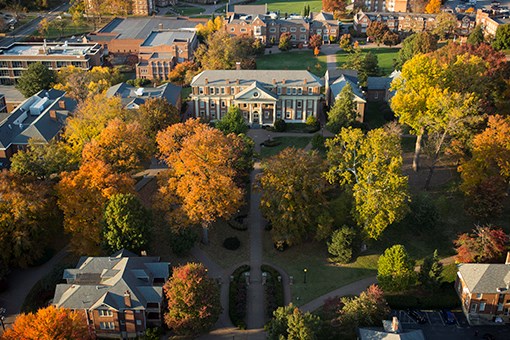Written by Robby Mangum
On Feb. 11, Dr. Cullen Truett, an RC alum and psychiatry resident at the University of Virginia’s Department of Psychiatry and Neurobehavioral Sciences, delivered a lecture titled “The Evolution of Schizophrenia” as part of RC’s annual Darwin Days speaker series events. He spoke about why the human brain would evolve to suffer from neurological disorders such as schizophrenia.
Truett started off by clearing up several popular myths surrounding schizophrenia, such as the misbelief that sufferers manifest split personalities; this is not true. He discussed the difficulties surrounding diagnosing and treating schizophrenia.
“To have a disease that encompasses the whole brain, and to find one solution for it, is really difficult,” said Truett.
Truett discussed theories addressing why evolution would create schizophrenia. He thinks that it goes back to prehistory, when there were multiple species of humans, such as Homo erectus and Homo neanderthalensis. The species that would become modern humans may have evolved what Dr. Truett called quasi-schizophrenic tendencies, which manifested when tribes grew too large.
People with these tendencies could have been seen as prophets or gifted oracles by their peers. Their schizoid behavior would help to break the tribes down to smaller sizes. Truett listed off Charles Manson and Adolf Hitler as extreme examples of this- charismatic and seemingly altruistic figures who served to create smaller groups.
Truett is a 2013 graduate of Roanoke College and a graduate of Edward Via College of Osteopathic Medicine. His interests include cultural psychiatry, psychosis, and global mental health. Truett says that working with schizophrenia patients appeals to him because his work has an immediate, real-world impact.
“[Schizophrenia] is very rewarding to treat, because you can give someone back function in their life,” said Truett.
This event was part of last week’s Darwin Days celebration. Darwin Day is internationally recognized on Feb. 12, the day of Charles Darwin’s birth.




